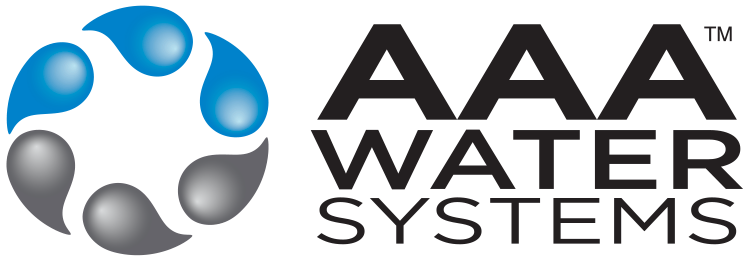Here Are The 5 Health Benefits of Reverse Osmosis Water
Reverse osmosis water actually has a lot of benefits. Here are 5 benefits worth checking out.
You learned on the news that your local water system has high amounts of lead in it. You’re concerned because you heard about the Flint water crisis and the dangers of lead exposure.
You have a family and don’t want to expose them to contaminated water. You look into various water filtration methods. You look into standard water filters. But they don’t filter out enough of the lead and other contaminates.
You also look into purified water sources. Then, you begin to learn about the health benefits of reverse osmosis water.
What are the benefits of reverse osmosis water? Reverse osmosis water contains fewer contaminants, has lower sodium, has no parasites or bacteria, and is safer for cancer patients. It filters out pollutants through a membrane filter that doesn’t allow solids and prominent microbes to pass through.
As a result, you get purified water that doesn’t have any contaminants. This article will explore how reverse osmosis water benefits your health. Read further if you wish to know more.
Powerful Filtration
Reverse osmosis water eliminates molecules that are harmful to the body. For instance, calcium deposits can harden your water and affect your skin negatively. The compounds can in the following forms:
- Phosphate
- Lead
- Arsenic
- Mercury
- Fluoride
- Chloride
- Cyanide
- Ammonia
All of these compounds can cause organ complications, cancer, reproductive issues, eye problems, etc. Moreover, tap water may contain harmful fertilizers and pesticides that further contaminate water.
Many water systems throughout the United States
contain excessive amounts of contaminants that jeopardize human health. You can test your own water with an at-home testing kit that measures harmful contaminants in your water. Or, you can test your water by smelling it.
Water that smells like chlorine or
rotten eggs indicates impurities in your water. The smell of rotten eggs, for example, notes the presence of hydrogen sulfide in your water.
Even though hydrogen sulfide will not impact your health in a negative way, it’s a pollutant that doesn’t need to be in your water. Further, water that has one contaminate may contain others that can affect your health in the long-term.
On the other hand, RO water filters out solids and chemical compounds. Additionally, it will remove pesticides and organic materials that aren’t fit for human consumption.
Lead Removal
Lead is one of the most prevalent contaminants in U.S.
drinking supplies. Lead infiltrates drinking water when the pipes undergo corrosion. Flint is a notable city that’s notorious for its lead contamination, but many other cities suffer from the same problem.
Moreover, adults and children tested positive for lead in multiple cities due to contaminated water supplies. Even trace amounts of lead are still harmful to humans.
Lead is so dangerous that the EPA recommends no lead presence in public drinking water whatsoever. Lead can cause the following health issues:
- Nerve damage
- Fertility issues
- Blood pressure spikes
- Muscle damage
- Developmental problems
- Brain damage
However, commercial RO water systems can be the solution that purifies public water systems for the masses. It can also lower other elements that are suitable for consumption, such as salt.
Reduces Sodium Levels
Water via reverse osmosis removes between 90 to 95 percent of sodium from water supplies. RO filters out sodium through the same thin membranes that expel contaminants. A glass of water may contain 12 mg of sodium on average. Additionally, bottled water may contain sodium.
Sodium can get into your water for the following reasons:
- Natural process
- Water treatment methods
- Ion water units
Even though a glass of water doesn’t contain a high amount of sodium, you can consume a fair amount of sodium when drinking multiple glasses of water per day. Health experts recommend drinking at least 8 glasses of water per day.
And, some forms of water of higher sodium levels than the other. The EPA recommends no higher than
20 mg of sodium in water sources. If not careful, sodium water can contribute to 10% of a person’s overall sodium intake.
RO is a useful mechanism if you’re on a low-sodium diet. Excessive sodium can lead to high blood pressure, which leads to such health issues as heart disease and kidney/liver problems.
However, RO can filter out salt caused by natural or man-made processes.
No Parasites or Bacteria
RO can filter out parasites in the form of cryptosporidium. Cryptosporidium affects the small intestines and causes fever, cramps, and diarrhea. This parasite affects children, causing malnutrition and dehydration. And, an RO filter can get rid of other waterborne parasites, such as giardia.
Giardia is another parasite that can cause intestinal complications. It’s most common in children. It can also cause death in children if left untreated.
Experts recommend RO filtration if you live in an area that has a dirty water system. And, RO filters can filter out bacteria because they are too large to penetrate through the membranes.
Safer for Patients
Since RO water contains no parasites and harmful microbes, it is safe for patients undergoing cancer treatment. Radiation therapy weakens the immune systems of many cancer patients.
Drinking contaminated water of any kind could compromise their immune systems and cause health issues. Moreover, patients can use RO water when cooking. Therefore, they can avoid cooking with tap water. Tap water may contain bacteria or other malicious compounds.
The Overall Health Benefits of Drinking Osmosis Water
The overall health benefits of drinking osmosis water are purity levels. RO water is one of the few drinking sources that contain no minerals or impurities. Bacteria and parasites cannot enter through a filter.
Additionally, an RO system dispels contaminants in the form of lead or mercury. Lead and mercury can degrade human health over time. And, the elimination of compounds gives the water a purified taste that’s clean and refreshing.
It also filters out sodium levels that can contribute to high blood pressure. However, the RO method is only as good as the filter. Broken filters allow microbes and contaminants to pass through. Therefore, replace your filters regularly.
Interesting in learning more about the reverse osmosis method and AAA water? One of our AAA water team members would be happy to help you.
Click here to learn more about how we can purify your drinking water.


